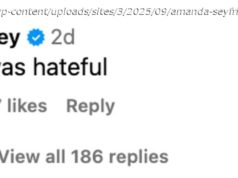MDMA — the scientific name for the street drug ecstasy — has shown to be an effective treatment for PTSD.
“Five times I should be dead, at least one time in Iraq, and I’m still here.”
Jonathan Lubecky is a former Marine and member of the North Carolina National Guard who served in Iraq. After battling the enemies overseas, he returned to North Carolina and battled personal demons. “I saw the worst of the humanity,” Lubecky said about his time in Iraq.
In 2006, Lubecky’s post traumatic stress disorder (PTSD) led to thoughts of suicide, and to the Veterans Monument in Raleigh.
“I sat there for about two hours trying to come up with the best way to kill myself,» he said.
Instead, he managed to find his way to Womack Army Medical Center in Fayetteville just days before Christmas.
“I walked in and told them I was going to kill myself. They gave me six Xanax and said, ‘Don’t take them all at once — it will kill you. And give your guns to a neighbor when you get home. And come back after the holidays.’”
Lubecky said he almost didn’t survive the weekend.
“In the early hours of Christmas morning in 2006, I drank a bottle of vodka, loaded a 9 mm Baretta, put it to my temple and pulled the trigger — and the gun malfunctioned,» Lubecky said. «That’s my first of five suicide attempts.”
Lubecky later moved to Charleston, South Carolina, where his regimen to treat his PTSD included 42 pills a day. During one trip to get a refill, a medical intern at the Charleston VA hospital slipped him a note. «It said, ‘Google MDMA PTSD,’” Lubecky recalled.
Once outside the walls of the VA, Lubecky discovered that MDMA is the scientific name for the street drug ecstasy; researchers were in the early stages of studying the drug’s effect on PTSD. He soon enrolled in a clinical trial, where he was legally given doses of ecstasy in a controlled setting. The drug helped counter Lubecky’s flight or fight mentality when talking about what he saw in Iraq.
“The MDMA puts the mind and body in a place where the therapy can work,” he said. Lubecky had three treatments using ecstasy, six to eight weeks apart.
“MDMA therapy has been shown to really dramatically resolve those symptoms of PTSD,” said Dr. James Nichols, a pharmacologist from UNC Chapel Hill who’s one of the world’s leading experts on psychedelic drugs.
Nichols actually created the ecstasy compound that Lubecky took.
“It looks like psychedelics — maybe I’m going to hesitate to say a magic bullet — but they’re able to do things at this point that we’ve seen in these studies that other treatments and medications are unable to do,» Nichols said.
Researchers found that PTSD was dramatically reduced in 70 percent of their test subjects, including Lubecky.
“I literally went from being in a VA mental health inpatient ward to working on a presidential campaign on a national level in two years,» Lubecky said. He added that the treatment can be beneficial beyond military members.
“This isn’t just veterans,» he said. «This is domestic violence, this is child abuse survivors, this is law enforcement, firefighters — everybody that can suffer from PTSD.”
Lubecky now spends his time spreading the word about this therapy, which the Food and Drug Administration recently classified as a breakthrough for treatment of PTSD. A third wave of trials sponsored by the Multidisciplinary Association for Psychedelic Studies (MAPS) is in progress across the country. Lubecky’s goal is to make ecstasy a prescription medicine by 2021.
“I know how much this helped me,» he said, «and I want to make sure every single person out there with PTSD knows this treatment is coming.”
He knows firsthand the impact the therapy’s had on him.
«Do you know how big a difference it is,» he asked, «when you go (from) living every minute of your life thinking tomorrow you’re going to kill yourself to believing you’re going to be alive next week?”






